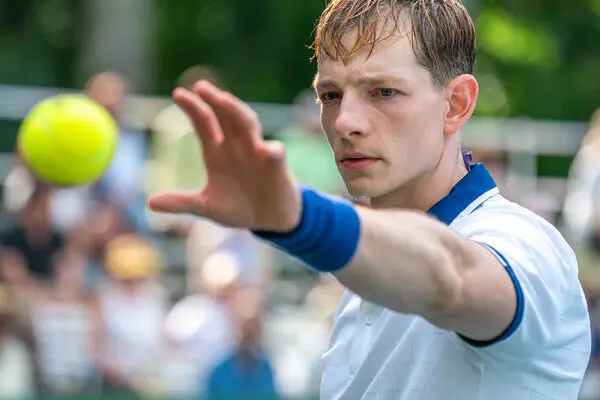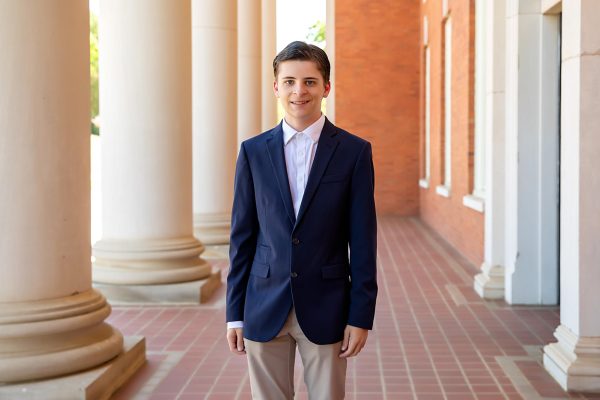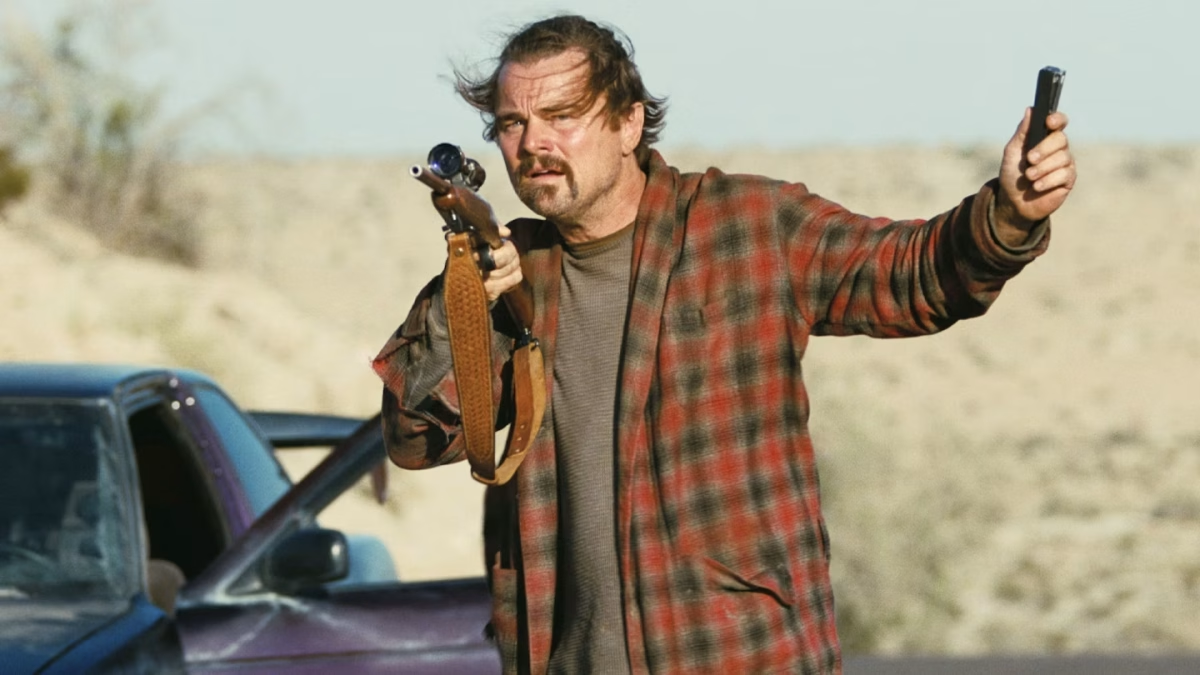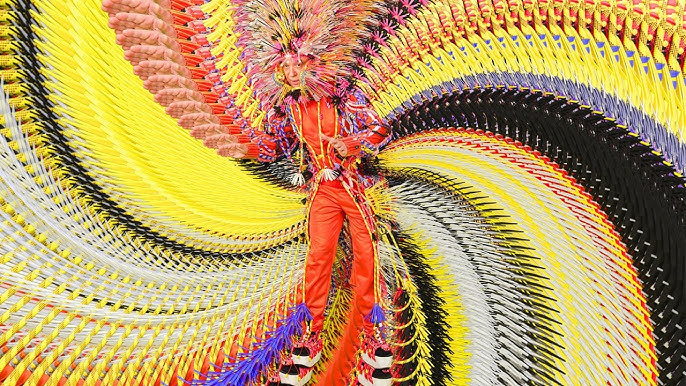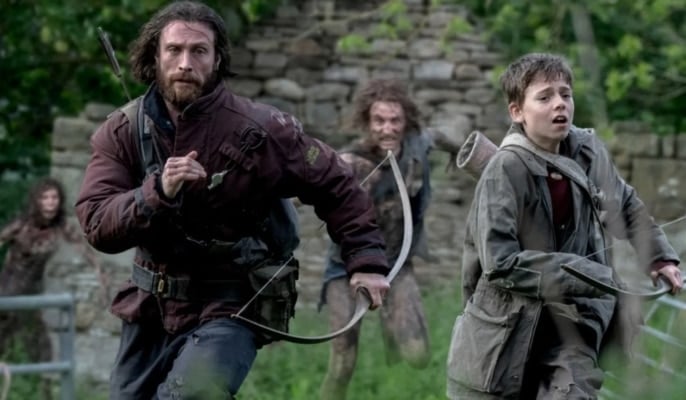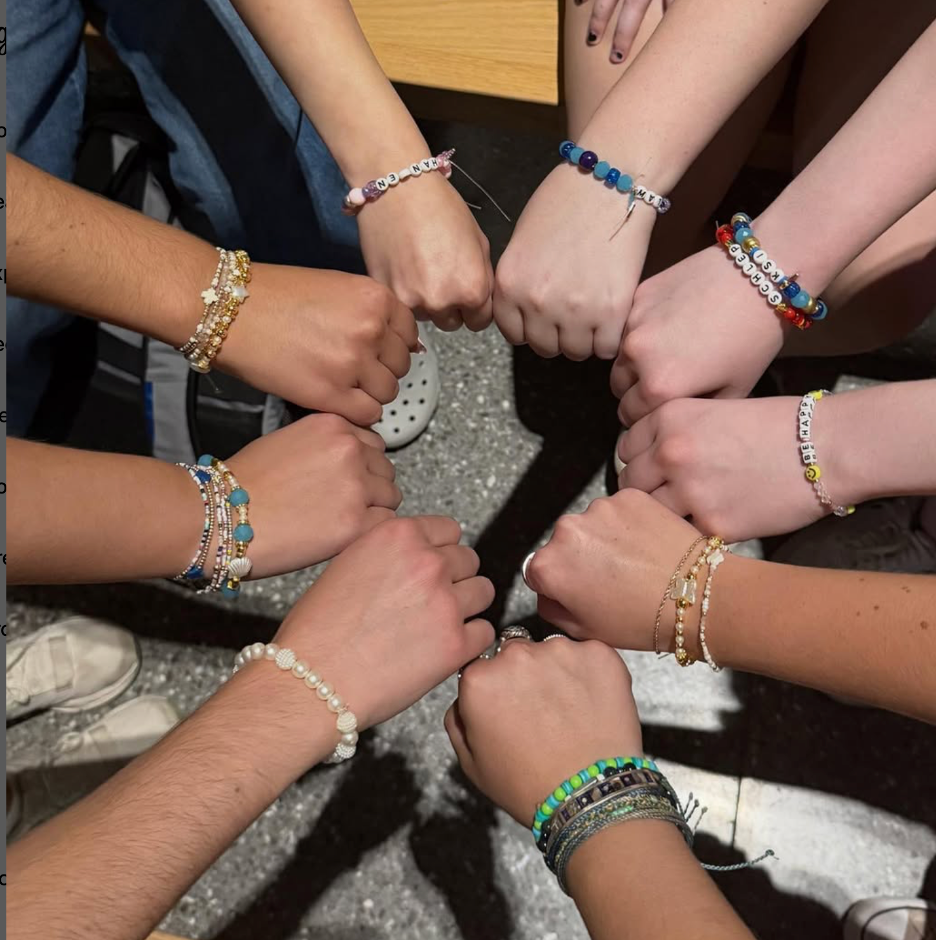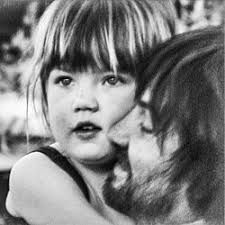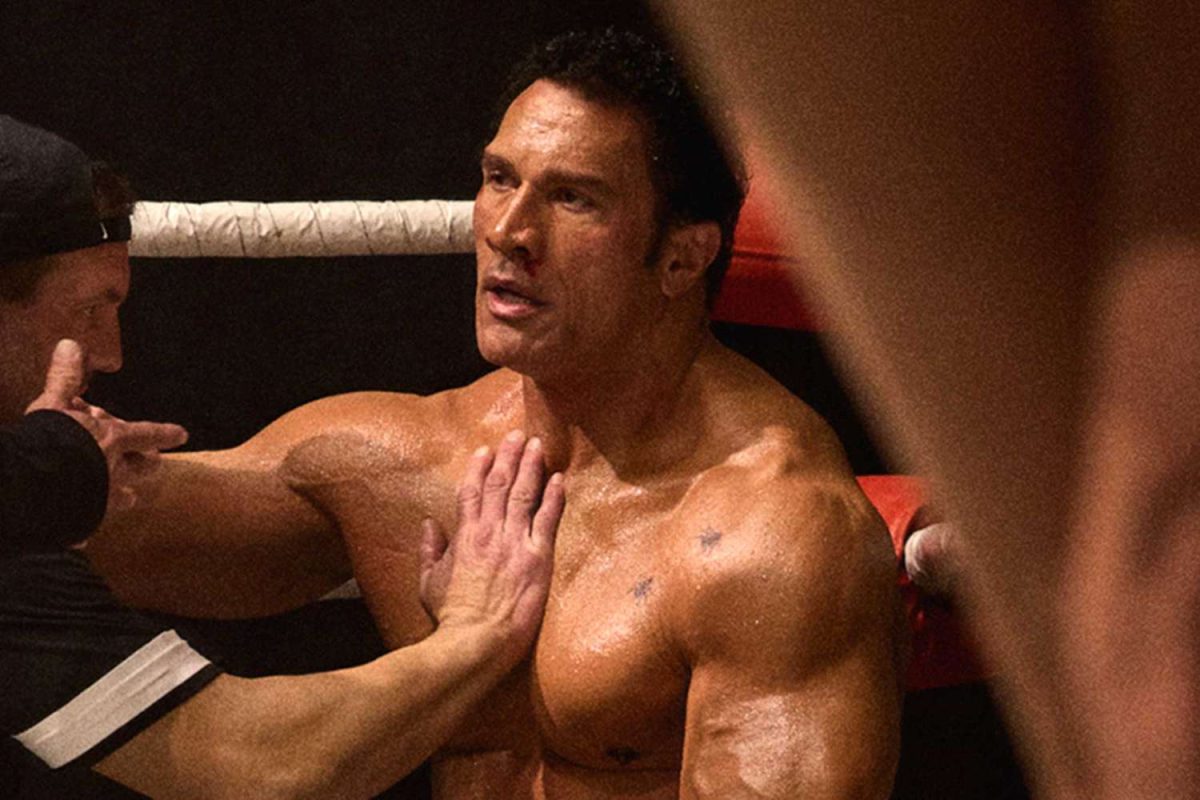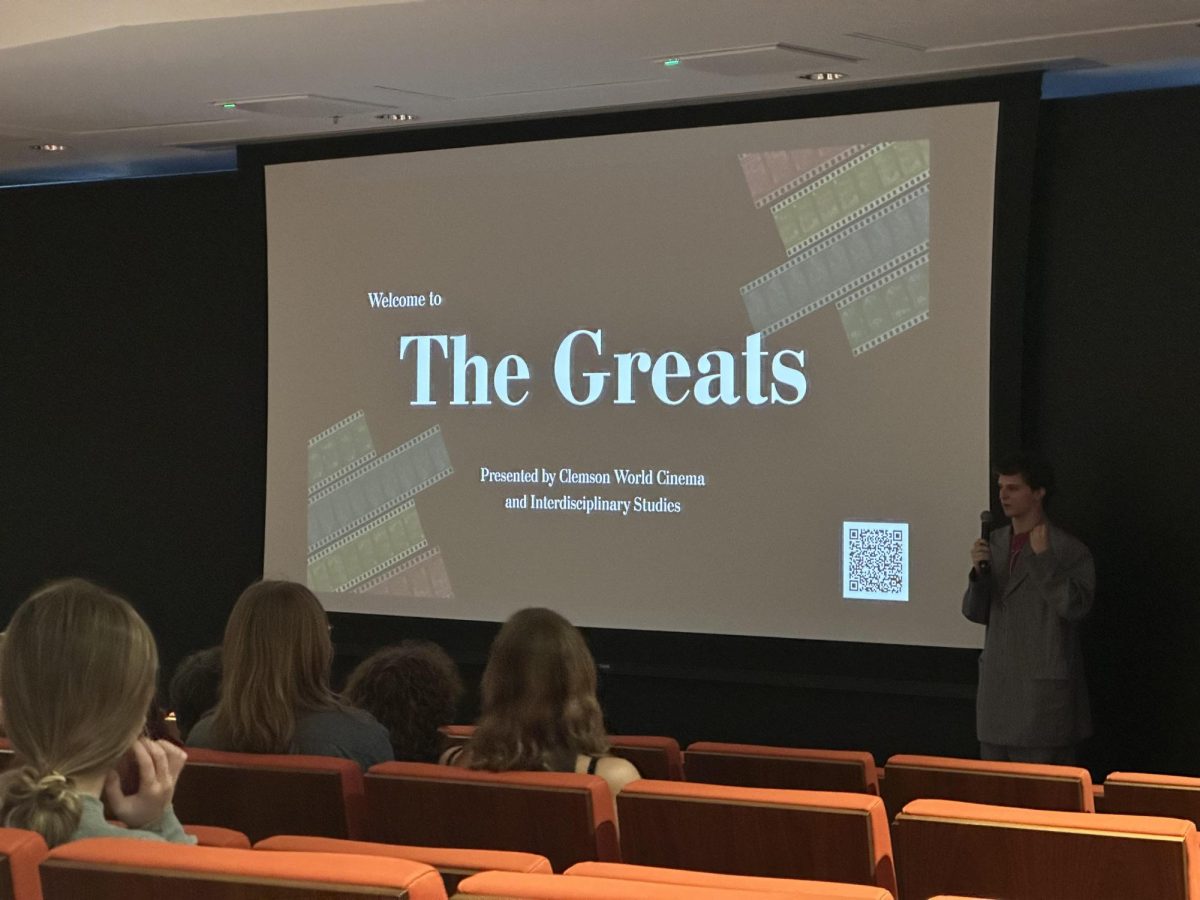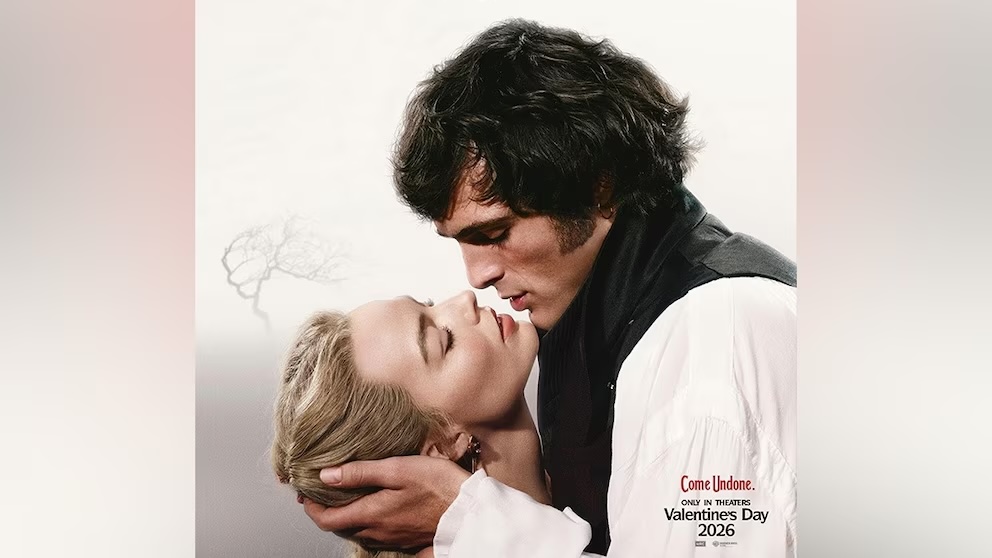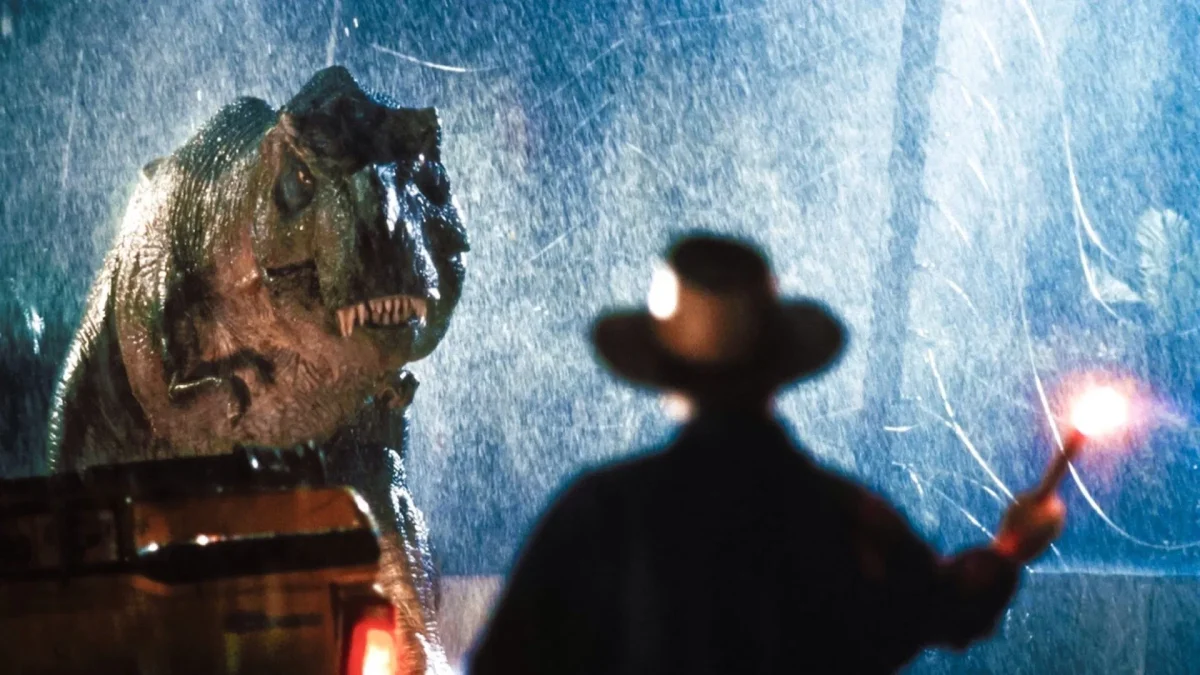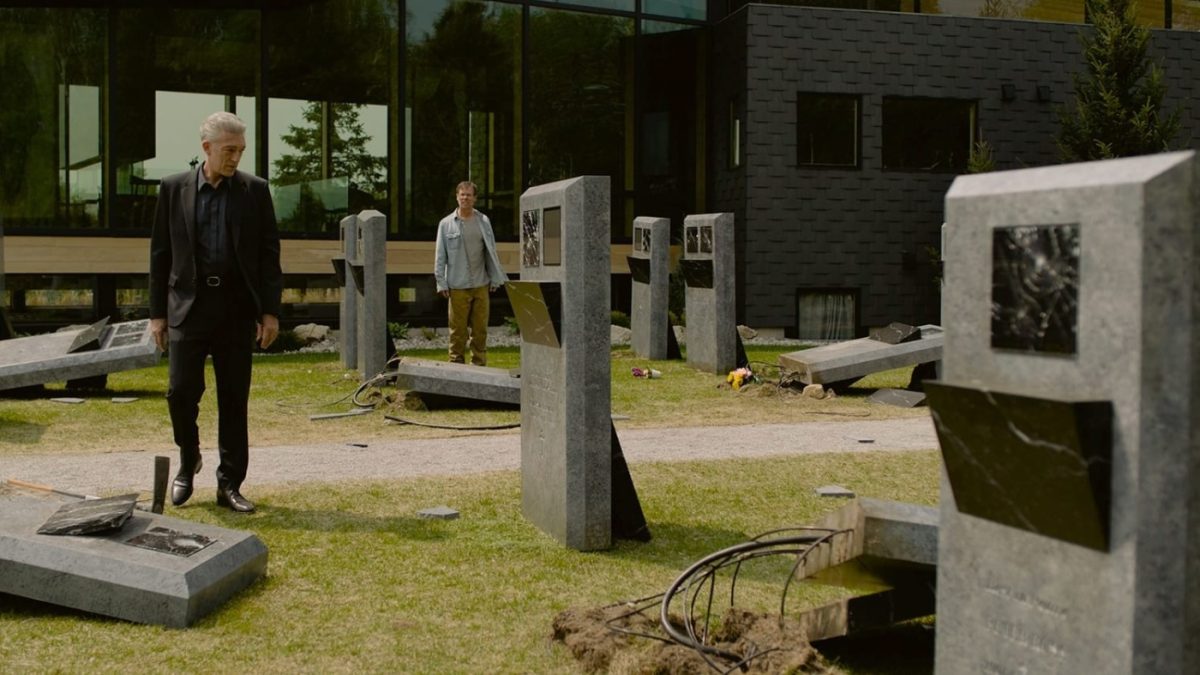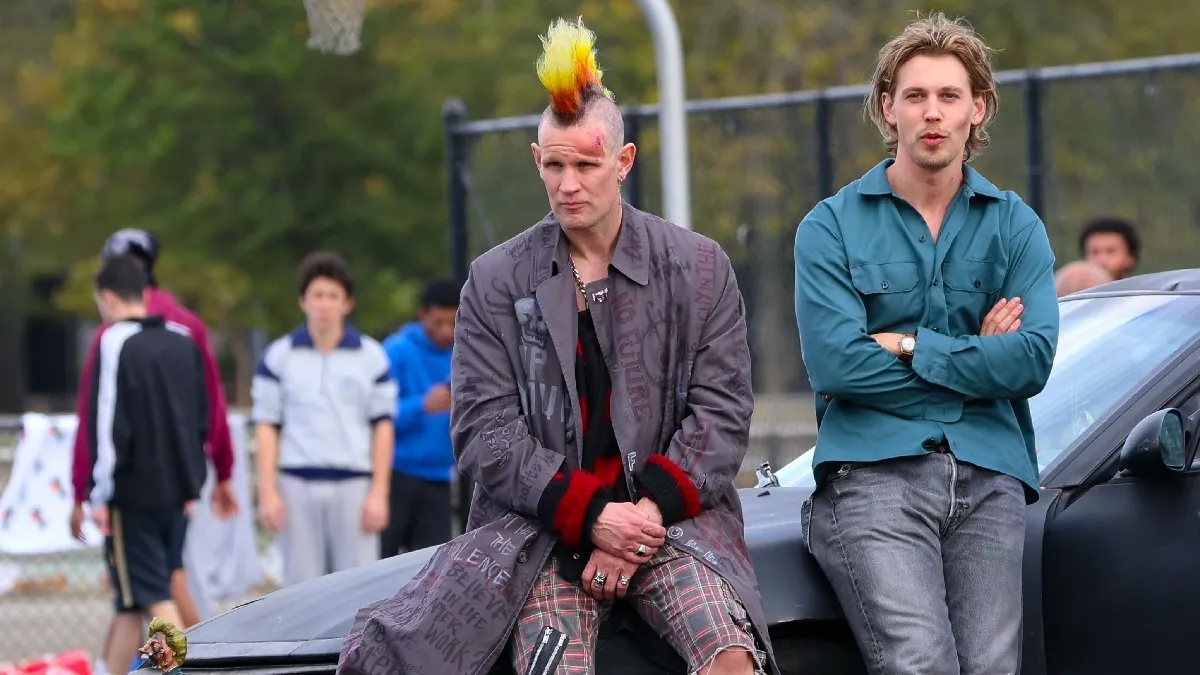Near the end of Luca Guadagnino’s “Challengers,” Mike Faist’s disgruntled tennis pro Art Donaldson tosses the ball into the air. This in and of itself is unremarkable — it’s a tennis movie, and there are plenty of shots of guys throwing the ball — but in this case, the camera follows the ball, pauses for a split second and then becomes the ball.
Cinematographer Sayombhu Mukdeeprom’s camera bounces around the court, offering fragmented glimpses of Donaldson, his opponent Patrick Zweig and the audience, which includes Art’s wife Tashi. It’s a ridiculous choice. In a less assured movie, it wouldn’t work at all, but here it’s transcendent.
I’ve seen the movie thrice and become the Leonardo DiCaprio pointing meme every time that shot appears. It is brazen and silly, but it works so well in context. The whole movie, really, is a very brash, ridiculous elevator pitch elevated to perfection by the lightning-in-a-bottle combination of director, cast, crew and screenplay.
In “Challengers,” the audience is gradually introduced to Art, Patrick and Tashi through a series of flashbacks framed by the climactic tennis match between the two male leads. YouTube “potion seller” Justin Kuritzkes’ script is exceptionally structured, elegantly weaving in and out the characters’ backstories to constantly recontextualize Art and Patrick’s relationship in the lead-up to the titular Phil’s Tire Town Challenger.
Art and Patrick are initially friends, but have a falling-out when Tashi chooses a relationship with Patrick over Art. Subsequent flashbacks document the unraveling of Patrick and Tashi’s relationship as Art steps in and eventually marries her. Kuritzkes carefully withholds information from his audience, leaving us in the dark as to the totality of the psychosexual drama underpinning the final match until the very end.
After an ecstatic third-act reveal, the film becomes devoted entirely to Art and Patrick’s battle on the tennis court as Tashi looks on from the stands.
While “Challengers” has a high-concept narrative conceit, much of its greatness comes from the intersection between exceptional craftsmanship and sleazy, low-rent concepts. Its plot recalls the slew of erotic thrillers released in the 1990s, but its menage a trois was filmed by the same cinematographer as Weerasethakul’s “Uncle Boonmee” and its schlocky Eurodance score was composed by Nine Inch Nails masterminds Trent Reznor and Atticus Ross.
Without the three actors at its center, though, the movie would fall apart. Mike Faist and Josh O’Connor perfectly embody Art and Patrick, selling their close friendship and eventual bitterness towards each other. Zendaya’s performance has garnered more mixed reviews, but it’s just as good. Her aloof coldness makes the few times she lets emotion break through — most memorably in the film’s final seconds — all the more impactful.
The score is incredible, combining techno beats and occasional children’s choir contributions to exceptional effect.
It’s difficult to articulate precisely why “Challengers” works so well — all of its parts are exceptional, but they combine into something even better. The first time I saw the movie, I spent the entire drive home listening to the soundtrack at an inadvisable volume and laughing periodically in disbelief over how incredible the movie had been. It’s the film of the year in my eyes.



